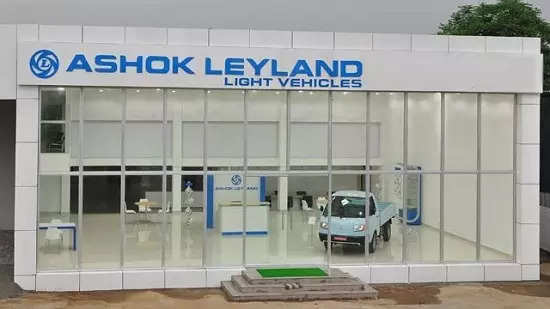
New Delhi:
In a bid to accelerate its path to break into the top 10 global commercial vehicle market, Ashok Leyland plans to expand its domestic and international businesses with a renewed focus on the small and light commercial vehicles (LCVs). As part of the strategy, India’s third largest commercial vehicle maker is now identifying market ‘white spots’ (segments with unmet needs) in this area to ramp up its volume base with new products.Last year, the company’s LCV business grew by 12% to 52,222 units and it expects this segment to grow above 10% this year, fuelled mainly by the e-commerce boom.
In recent years, the small truck sector has been the fastest growing vehicle category in India. The overall LCV category jumped 17% to 475,989 units in FY22 compared to 407,871 units in the year ago period. The broad range of LCV sizes and configurations has seen the sector capitalize on changes in demand dynamics and supply chain concepts to become the ‘workhorse’ of choice for the Indian businesses.
Factors fuelling this growth include urbanisation and a fundamental shift in consumer behaviour with the growth of e-commerce. Additionally, we are also seeing the LCV segment growing fast for last mile transportation. Globally, LCVs account for 75% of commercial vehicles sales in terms of volume, while in India it is 61%, dominated by Tata Motors and Mahindra & Mahindra (M&M) with 35% and36% market share respectively.
Ashok Leyland that holds 13% has a long way to catch up in this highly competitive space. The OEM had entered the LCV space in 2011 with the 2.5 tonner Dost. To enhance its presence into this resilient CV sub-segment, it launched the ‘Bada Dost’ based on an indigenously-developed new generation LCV platform Phoenix in 2020. It offers a variant each in 3 and 2.5 tonne categories.
The renewed focus on building the small and light commercial vehicle business could also see Ashok Leyland taking on Tata Motors and M&M in lower categories too. Could a product in the mini truck category, dominated by the Tata Ace, be in the works too? Ashok Leyland’s chairman Dheeraj Hinduja said, “We are evaluating all options because from a company perspective we make sure we fill in all the product gaps in our portfolio.” Given the growing market for last mile delivery options, it won’t be surprising to see a product intervention by Ashok Leyland in the 1-2 tonne category too soon.
Growing LCV volumes will be critical for Ashok Leyland in realising its vision to be among the 10 largest commercial vehicle manufacturers in the world. According to Gopal Mahadevan, Whole Time Director and Chief Financial Officer, for Ashok Leyland globally and in India, LCV in comparison with heavy trucks is 3-5 times more in volumes. “If we need to grow as a top 10 CV maker, then it is very important that we also grow the LCV business. We are making active considerations and evaluating various to expand our presence in this segment,” he said.
Currently, Ashok Leyland has DOST LCV in the sub-two tonne cargo segment, where Tata Motors Ace is the market leader. In September 2020, the company launched its first LCV range on the Phoenix platform called Bada DOST in two variants – i4 and i3 in 3-3.5 tonne GVW. With Bada Dost, Ashok Leyland is eyeing to double its addressable market to 65% from the present 34% in the next 2-3 years.
In addition to conventional fuel, the company is also planning to introduce CNG and LNG variants in this segment with Dost+ CNG, Bada Dost CNG, EComet CNG.
Capex plan for FY23
The Chennai-based company plans to invest about INR 500 crore -600 crore as a capex in the ongoing financial year in plant debottlenecking to cater to the expanding demand of commercial vehicles. In the last financial year, the company had earmarked INR 750 crore as capex.
Mahadevan highlighted that the company has generated enough cash in FY22 that brought down its net debt significantly. “Our net debt has actually come down to INR 2700 crore in the beginning of the year to just about INR 700 crore at the end of the year,” the CFO said.
Switch Mobility’s India operations
For Switch Mobility, the electric vehicle arm of Ashok Leyland, the company hasn’t zeroed down on standalone integrated facilities in India. It is still in talks with financial investors to raise over USD 200 million for its expansion.
From this vertical, the company is looking to introduce low-floor buses, double decker electric buses and light vehicles (eLCVs) for the Indian market. “We can use any existing company’s plant as of now for the fresh demand for Switch. But looking at growth in volume, in the next 3-6 months we should be in a position to finalise where we would like this new facility to be,” Mahadevan said.
At present, Switch Mobility is manufacturing electric buses at a dedicated portion of Ashok Leyland’s Enncore plant. For electric LCVs, it is planning to utilize some space in Ashok Leyland’s Hosur plant.
![]()















